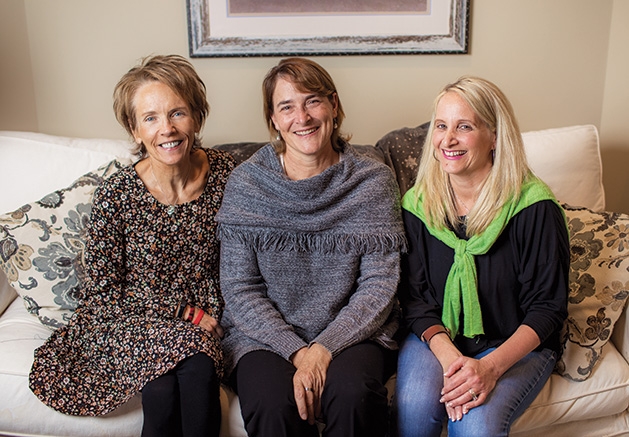
Raising a child is already a difficult task, but the challenge increases exponentially when that child is living with a mental health issue. Unfortunately, it’s not uncommon. The National Alliance on Mental Illness (NAMI) reports that 1 in 5 children ages 13 to 18 have or will have a serious mental illness.
For parents who see their children displaying warning signs of mental health issues, NAMI recommends talking with a pediatrician, getting referred to a mental health specialist, working with a child’s school and connecting with other families. That last step can seem tricky, and that’s where Mental Health Navigators step in.
“We are a non-traditional, virtual network of supportive parents. Not a therapy group, but a collaborative group of parents in the western suburbs and surrounding community,” says group member Toni Plante. “We help navigate the process of dealing with kids’ mental health issues, focusing on awareness, acceptance and advocacy.”
Plante, who lost her teenage daughter to suicide in 2016, helped form the group with fellow member Cathy Rude after another tragic loss of a student in their school district. “It all started because every time I would tell the story, I would get a Facebook message from someone I didn’t know,” says Plante. “I thought, we've kind of got something here, because there are a lot of parents not reaching out to the school or publicly.”
Known to some for her background in public health, Rude had also been fielding questions. “Parents would reach out and say they needed help, were concerned about their child and apprehensive to let school people know because they worried about the stigma and needed help navigating the system,” she says.
This led to the formal development of Mental Health Navigators and the creation of its private Facebook group, a place to share information and for parents to reach out. It is a resource for parents looking to connect with other parents, and to learn more about what’s happening in their community. The members emphasize it is not a replacement for a crisis hotline or professional therapy.
“We want to be a place of compassion and a place where people feel understood,” says Robin Livingston-Richter, group member and family therapist. “On our current Facebook page, people share questions, concerns, relatable stories. One tagline of ours is ‘no parent left behind.’ We’re here for them in whatever way they might need.”
The group is working to provide resources nationally, too. “The vision is, once it goes online, anyone can access it,” says Sam Richter, another member. “You can imagine a Facebook-like website in the sense that people can go on and have public discussions, but more private and confidential.”
The site will also feature a searchable community board and a more focused search engine to make local resources easier to find. “It’s designed to be a sounding board and a compassionate ear, but also to provide resources and guidance,” says Richter.
For Mental Health Navigators, the biggest priority is filling the gap when it comes to parent-to-parent support. Livingston-Richter points out the need for parent self-care, saying, “We think of parents as being the first responders for their kids; we want to be the support link for them.”
The group agrees one of its main goals is to end the isolation of parents who have children living with mental health issues. Plante adds, “My lifelong dream for this is that it wouldn’t be needed, because no kids would be suffering.”
If you believe your child is in imminent danger from self-harm, contact the National Suicide Prevention Lifeline at 800-273-TALK (8255) or call 911.
Mental Health Navigators
toniplante@gmail.com
Facebook: Mental Health Navigators (must join for access)
Twitter: @mentalhealthna1









